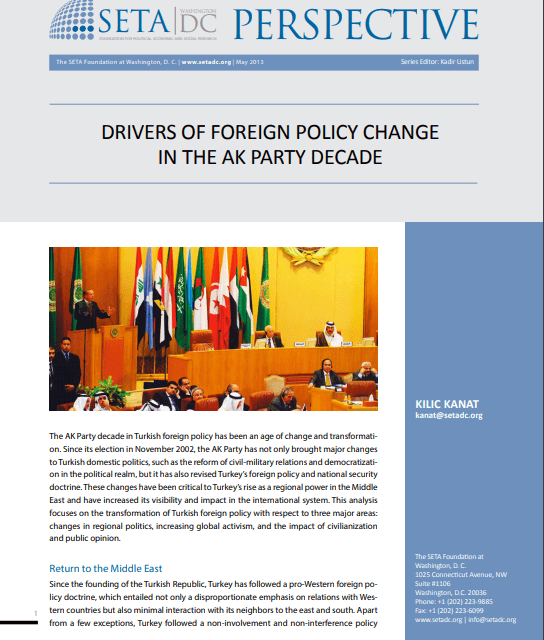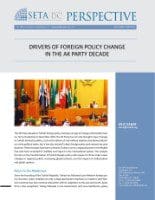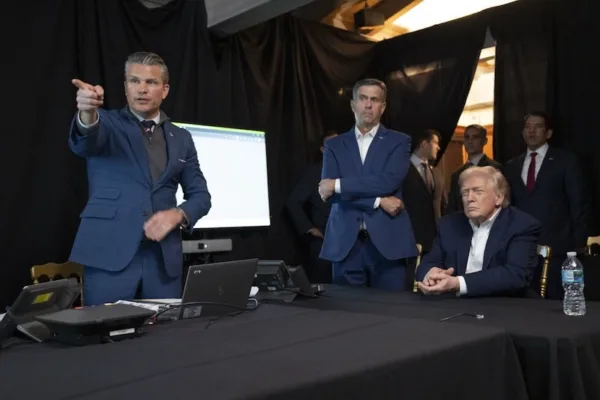Drivers of Foreign Policy Change in the AK Party Decade

By Kilic Kanat
The AK Party decade in Turkish foreign policy has been an age of change and transformation. Since its election in November 2002, the AK Party has not only brought major changes to Turkish domestic politics, such as the reform of civil-military relations and democratization in the political realm, but it has also revised Turkey’s foreign policy and national security doctrine. These changes have been critical to Turkey’s rise as a regional power in the Middle East and have increased its visibility and impact in the international system. This analysis focuses on the transformation of Turkish foreign policy with respect to three major areas: changes in regional politics, increasing global activism, and the impact of civilianization and public opinion.
Return to the Middle East
Since the founding of the Turkish Republic, Turkey has followed a pro-Western foreign policy doctrine, which entailed not only a disproportionate emphasis on relations with Western countries but also minimal interaction with its neighbors to the east and south. Apart from a few exceptions, Turkey followed a non-involvement and non-interference policy towards most of the Middle East. Ideological and political polarization during the Cold War intensified this self-sustained exclusion from the region. While Western nations were building solid alliances and partnerships with various Middle Eastern countries, Turkish policy makers considered the region a quagmire and avoided any sort of partnership with neighboring countries… Continue Reading





















